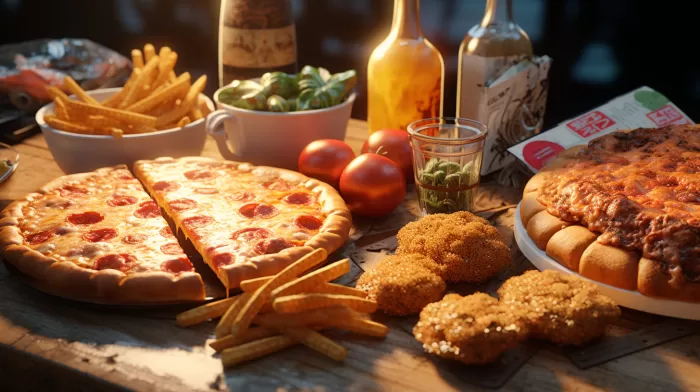Sugar, salt, flour, and fat are addictive substances that many of us consume daily. If you’ve ever experienced intense food cravings, you’ve likely encountered food addiction. Research shows that highly processed foods are addictive and act on our brains much like drugs or alcohol do. It’s time to consider the impact that addictive foods have on our health, and how to break free from them.
Processed foods are designed to ‘hook’ us
Dr. Ashley Gearhardt, a clinical psychologist and associate professor at the University of Michigan, helped develop the Yale Food Addiction Scale. This tool is used to determine whether a person exhibits addictive behavior towards food. Dr. Gearhardt suggests that people do not experience an addictive behavioral response to naturally occurring foods, like strawberries. However, highly processed foods are engineered to create addictive behavior, similar to alcohol or cigarettes.
Research shows that specific foods are more likely to elicit addictive behaviors, including intense cravings and a loss of control. In a study of over 500 people, researchers found that pizza, chocolate, potato chips, ice cream, French fries, and cheeseburgers were the top culprits. These foods are low in fiber and water, which would slow their absorption into the bloodstream, and high in processed ingredients that quickly absorb and trigger the reward center of the brain.
Breaking the junk food ‘habit’
Fortunately, you are not powerless against food addiction. Here are some steps to help break free from the grip of drug-like foods:
- Know your triggers: Identify when you are most likely to consume junk food. Is it after a hard day at work, following an argument, or when you’re overtired?
-
Know your foods of choice: Take note of what foods you eat compulsively. The most addictive food groups include sugar, fat, flour, wheat, salt, and artificial sweeteners.
-
Replace junk foods with foods you enjoy: Choose healthier alternatives to your favorite snack foods. For example, swap potato chips for nuts or raisins.
-
Plan ahead: Don’t let yourself get too hungry, as you may be more likely to reach for addictive foods. Prepare healthy snacks in advance and keep them readily available.
-
Learn to tolerate cravings: Cravings usually peak in the first ten minutes and then subside. If you can wait out the initial intensity, you may be able to overcome the craving altogether.
If you’re curious about your own food addiction tendencies, you can take the Yale Food Addiction Scale. Developed by Dr. Ashley Gearhardt, the questionnaire helps identify whether a person shows signs of addictive behavior towards food.
Remember, knowledge is power. Understanding your triggers and tendencies can help you overcome food addiction and make healthier choices in the long run. Choose whole, unprocessed foods whenever possible, and take control of your health today.
Sources:
Unhealthy Foods Aren’t Just Bad For You, They May Also Be Addictive — NY Times
The genetic trait that makes you susceptible to unhealthy food cravings — USA Today
The concept of “food addiction” helps inform the understanding of overeating and obesity: YES — American Journal of Clinical Nutrition
Which Foods May Be Addictive? The Roles of Processing, Fat Content, and Glycemic Load — PLoS One
How to Break the Junk Food Habit — Medical Express
Yale Food Addiction Scale — NCBI



